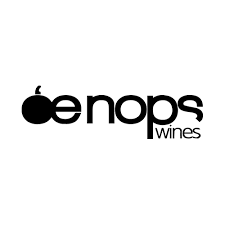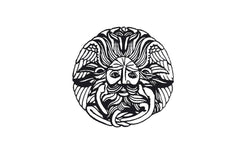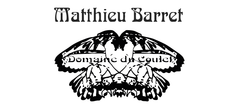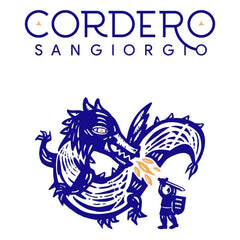11 products


- Rosé Wine
- Limniona, Mavroudi, Xinomavro
- Sustainable
- Dry
- Medium Bodied
- 750ml
About the Winery
Oenops

Founded in 2015, Oenops, meaning ‘wine face’, is a pioneering project whose mastermind is the talented winemaker Nikos Karatzas. Following the micro-négociant system, Oenops aims to produce high quality, great value wines. Rather than owning vineyards, the company sources grapes from selected plots across Greece’s best terroirs, with a focus on cool-climate sites and old vines of indigenous varieties.
At the core of the company’s philosophy is the close partnership with ambitious growers who share a same sustainability-focused approach. Oenops mission is to source great fruit and craft wines that fully express its quality and sense of time and place. By using simple methods, led by the profile of the grapes rather than by any winemaking protocols, the company has built a range of authentic, fruit-forward wines that bring out the best of each variety, terroir and style.
The team tastes meticulously and tailors its approach to each plot and variety, based on the core philosophy and ethos. By vinifying each plot and variety separately the team has grown an understanding of the specificity of each vineyard and of the work done each year, in turn allowing for improvement in each vintage.
A repertoire of indigenous grape varieties, such as Malagousia, Assyrtiko, Vidiano, Roditis, Xinomavro, Limniona, and Mavroudi, is expressed through different styles of Greek varietal wines and in labels that have gained widespread recognition, among consumers and critics alike.
What the team at Oenops strives for is, ultimately, to produce tasteful, elegant wines that work as perfect companions to every meal and special occasion.
Press Reviews
Wine Align
90 points (2021) - Michael Godel
Here Rosé is crafted from three local favourites, of xinomavro, limniona and mavroudi. Good trilogy of complimentary aspect and interaction, grape extract, salumi cure, red citrus and salinity all involved, integrated and in check. Definite rose and grapefruit essence, calm and pleasure guaranteed. Very Greek, island and sea. Drink 2022-2024. Tasted March 2022.
89 points (2021) - David Lawrason
This three grape rose blend of xinomavro, limniona and mavroudi is a smooth, balanced, dry rose with pale pearl pink colour, a clean, floral nose with ground cherry, strawberry and fine herbs. It is light to medium bodied, fresh and lightly mineral. The focus and length are excellent. Tasted March 2022
89 points (2021) - John Szabo, MS
Like the Apla red from Oenops, the rosé is blend of Greek natives xinomavro, limniona and mavroudi, rendered here in a pale copper-orange colour, with a lovely, fresh, crunchy, tart red fruit-inflected nose. The palate is dry and crisp, with some waxy and savoury flavours, balanced-fresh acids and good length. A pleasant and crunchy rosé all in all, with solid flavour definition. Drink now or hold short term. Tasted March 2022.
- White Wine
- Chardonnay
- Sustainable
- Dry
- Medium Bodied
- 750ml
- 12.5% alc./vol
About the Winery
Groupe Bellene

Led by Nicolas Potel in Beaune, Groupe Bellene is composed of the négociant arm Maison Roche de Bellene, the winery arm Domaine de Bellene, and a special back-vintage series under the Collection Bellenum label.
- Maison Roche de Bellene offers a complete range of wines, with an emphasis on individual terroirs from old vines of more than 40 years. All of the growers that Nicolas works with are either organic certified or sustainably farmed.
- Domaine de Bellene represents the wines that are produced and bottled from Nicolas Potel's private vineyard holdings.
- Collection Bellenum is a back vintage series that Nicolas Potel sourced from his friends in the region, offering a magnificent selection of bottled history. The wines have moved only twice in their lives, from the original cellar to Potel's and now to yours!
Nicolas Potel grew up at Volnay's Domaine Pousse d'Or, where his father worked. He trained abroad and returned home in 1996 to build a négociant business and started Maison Nicolas Potel, where he sourced grapes from good parcels, often working with the growers to improve the quality. By 2002, he was making 120 wines from 50 different appellations, and the rest is history!
- Red Wine
- Syrah
- Biodynamic, Natural, Organic, Vegan-Friendly
- Dry
- Medium Bodied
- 750ml
- 12.5% alc./vol
About the Winery
Domaine du Coulet - Matthieu Barret

Matthieu Barret was born in Aix-en-Provence in 1975 and studied viticulture in Beaune.
He is the 7th generation vigneron and joined his grandfather in Cornas in 1997. Previously, his family had only been farming and selling grapes. He practices biodynamic viticulture, obtaining very low yields (23 hl/ha) and extraordinary quality. He describes his wines as being 100% grape, with a very low sulphite addition. His wines are extremely clean, and, true to the Cornas character. Domaine du Coulet was founded by Matthieu Barret’s grandfather after WWII, and over the years has supplied grapes to some of the best known producers in the Northern Rhône, including Chapoutier and Delas. While his father eschewed the agrarian lifestyle, opting instead for a career in international business, Matthieu knew early on that he wanted to be a vigneron. In 1998 at the age of only 23, he took over the family’s 25 acres of well-situated vines on the terraced hillsides of Cornas.
From the beginning, Matthieu has employed natural, organic practices and by 2002 (his second year of production) the domaine received its biodynamic certification. With each vintage, Matthieu has gained a better understanding of his vine parcels and through thoughtful experimentation, he now turns out a remarkable selection of Cornas wines that express the unique nuances of each micro-terroir. No new oak, no racking, minimal use of sulfur and no fining or filtration. Pure, sexy Syrah.
- Red Wine, White Wine
- Chardonnay, Pinot Noir
- Sustainable
- Dry
- Medium Bodied
- 750ml
About the Winery
Cordero San Giorgio

Cordero San Giorgio is a new beginning in Oltrépo-Pavese for three siblings who grew up surrounded by their family’s vines at the legendary Vietti Estate in Castiglione Falletto in Barolo. The siblings Francesco, Lorenzo, and Caterina Cordero, are grandchildren of Luciana Vietti & Alfredo Currado, one of the pioneers of the first Barolo crus and considered the “father of Arneis.” Their father is Mario Cordero, Alfredo and Luciana’s son-in-law, who was the company’s co-owner from the beginning of the ‘80s until 2016 when it was sold.
Cordero San Giorgio is located in Santa Giuletta, a village sitting on the first hilly belt of the territory, an area made up of valleys that fan out over the Po Valley with steep slopes and thick ridges. The composition of the soil makes their site particularly suitable for the production of Pinot Nero, making it possible to obtain wines with maximum varietal expression and a strong territorial identity.
The Oltrepò Pavese is a hilly triangle of land in Lombardy, embraced by Piedmont, Liguria, and Emilia-Romagna. A territory dedicated to the cultivation of vines and the culture of wine for centuries: a land of both cultural and gastronomic encounter and exchange. Cordero San Giorgio is in the town of Santa Giuletta, and focuses on working with Pinot Nero, Pinot Grigio and Chardonnay.










